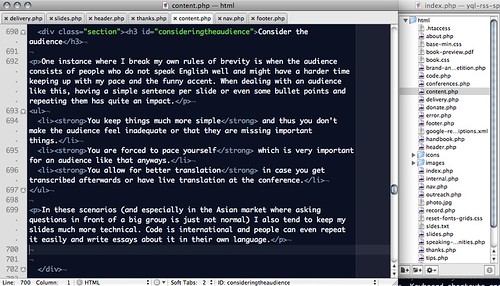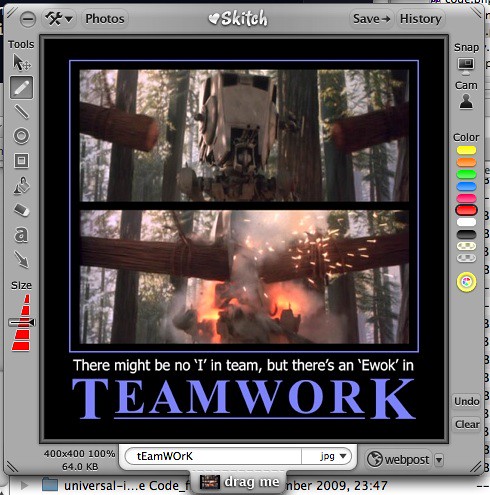Are free apps evil?
Monday, March 26th, 2012Lately there has been quite some debate about “free services” and what they mean to their users. A lot of it started with the excellent article “Don’t be a free user” by Maciej Ceglowski which described a few unpleasant truths:
- When you use a free service, you are the product that gets sold
- This means in the worst case that your identity information, likes and dislikes and connections with your friends are sold to third parties for data mining
- If the service doesn’t require you to enter this information the content you add to the service becomes the product sold to third parties
- Using a free service can also mean that you have no right to the content you add to it
- You shouldn’t be surprised that you lose everything when the service goes belly-up
The article however also points out that the solution to a lot of these issues – paying for the service – is not that common. We’ve been conditioned to expect everything on the web to be free. That is why the article was so important.
Lately another issue came up with free services – this time related to the mobile market: free apps are a big culprit of battery drain on mobile devices because of the constant loading of ads and reporting of data back to the ad providers and the app.
Strange reactions
What bugs me about all this is not that free services have issues. What bugs me is how a lot of people on the web react to the issue. There is a sense of gloating and arrogant repetition of the points in the Pinboard article as “duh, you should know and expect this” and there is a general consensus of “you can’t expect quality when things are free” and that “free users are doing it wrong”. The latter is especially ironic when a comment like that comes from a Yahoo, Gmail or Hotmail email account.
I got a lot of feedback when I complained about the fact that Twitter sold old tweets in bulk to data mining companies. Whilst my “not cool, Twitter” tweet was easily one of the most re-tweeted in the last months, the feedback was very polarised. A lot of people were outraged (in some cases overly so), and an incredible amount called me out as being naive for thinking that would not happen. The amount of people finding the main problem with this move was very few. The issue was not that data is sold, the issue was that third parties get access to my data while I am denied it.
Basic denial of service
My beef with this was not that Twitter sells the data – I don’t care, as Tweets are openly available on the web and I willingly publish them. My beef is that companies who pay for my data get better access to my data than I get. The Twitter API changed drastically lately and it is not easily possible for me to get a whole archive of my tweets. The API defines that I can get “up to 3,200 of a user’s most recent statuses” and that’s it. Even for searching Twitter and getting access to more than your last 20 photos you need other third party services that pull your information and store them on yet another server (which might be free and cause the same issue).
I use Twitter a lot and a lot of people thank me for my contributions. In order to retain information I have Twitter linked up with Pinboard – which I pay for – to have an archive of my links. I find it sad that I need to hack a service with another service to make me access my data in the future.
Now, Twitter makes money with my tweets, but doesn’t give me an option to get all my data that went through it – and that seems to be totally fine for a lot of people out there. Notice that I am not asking for any user’s tweets – just mine. The argument of the “that is fine” people is that tweets are openly available on the web and thus fair game for mining anyways.
Misdirected blame
That data is freely available on the web for mining should not be a carte blanche for companies to not give you access to your archive. Why offer an API at all when it is “so easy” to mine that information? Naming the best quality of the web – simple publication – as a reason to deliver sub-par user access seems to me lazy. Even the ill-fated Oink now offers you to get an archive of all the info you put in before it will go to the app farm in the sky where many a product bought by a larger corporation goes.
The same weird act of blaming the wrong thing happens with free mobile apps draining your battery. A lot of the comments and feedback blame the users for being idiots to use free apps and not deserving any better.
Let’s think about this: the poster child of a successful app and the success every app developer thrives to repeat is Angry Birds. Now, try to not “be an idiot” and pay for Angry Birds in order to preserve your battery life. Not possible.
The flagship app and the Cinderella story of startup success is a free app.
And as much as playing it is fun, the experience with ads is absolutely awful. I prefer very much playing it offline – as there are no banners covering part of the level and the performance seems to be much better. Even the HTML5 version is plastered with ads – funnily enough for Angry Birds itself. And this is where the real issue comes into play.
A need for new advertising models and metrics
The concept of a mobile app that requires me to be online is wrong. Our mobile connections are too flaky for that. The great thing about apps is that they do one thing and have offline and local storage capabilities and don’t expect me to be online. That means I can use them on flights and in tunnels.
So what is broken here is really the ad display model. You normally put ads in your products by hosting a third party script and pull the information from their servers. This worked on the web and to ensure that gaming the system is a tad harder the ad providers want to host the code and the banners and do their own click tracking (to avoid you for example putting the banner in an iframe, move it off-screen and reload it automatically). In a mobile world, however, this needs re-thinking. I’d really like to see the numbers of banner clicks in mobile games – I can safely say the only time I clicked any was when I actually wanted to explode a bird or slice a piece of fruit which means I got frustrated and much less keen on purchasing things.
One simple idea would be to allow app developers to download banners in bulk and rotate them locally rather than pulling them one by one. That way only clicking them would mean data transfers to the web. The display could be handled by local tracking. I found a few web banner services that do local caching like that. This means there has to be more trust between the app developer and the ad providers, but it would mean that you’d also have offline ads.
The second big problem is metrics. Right now all we measure as the success of apps is the number of users and downloads and when it comes to banners of course the number of clicks. This means of course that free apps will always be deemed much more successful than the ones that ask for payment upfront. So seeing the issues with free apps maybe it is time to reconsider how we measure the success of apps and get less excited about playing the number game.
Discussion on Google+






